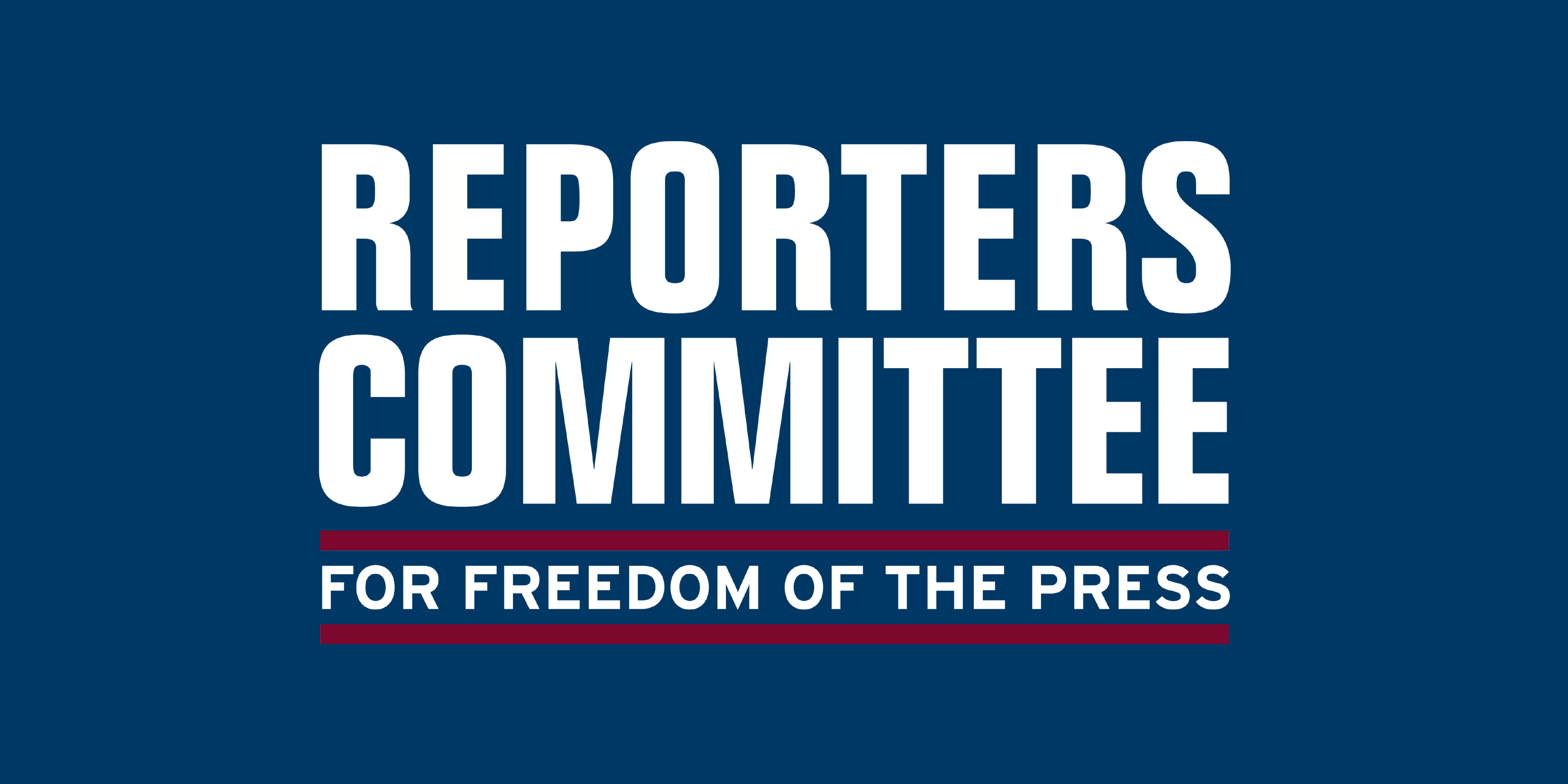Tennessee reporter uses RCFP hotline for help accessing police officer’s grievance

In June, journalist Mathaus Schwarzen obtained a lawsuit filed by a female police officer in Maryville, Tennessee, in which the officer alleged that she had been raped by a massage parlor owner while posing as a customer during an undercover investigation.
Schwarzen, a reporter for The Daily Times, wrote a story on June 22 that reported the facts alleged in the complaint, including that the officer had been asked to investigate the parlor owner for potential illegal activity. But the lawsuit made Schwarzen curious about whether the officer had filed an internal grievance about the incident with the Maryville Police Department. To find out, the 23-year-old filed a public records request — his first as a reporter.
The day after filing his request, however, the city denied it, claiming that the records he asked for were protected from disclosure because they are “evidence or potential evidence in an ongoing criminal case.”
Schwarzen was skeptical about the city’s reasoning for withholding the records. For a gut check, the reporter contacted Paul McAdoo, the Reporters Committee’s Local Legal Initiative attorney for Tennessee.

“He was instantly like, ‘Oh no, that [exemption] definitely doesn’t sound like it works,’” Schwarzen recalled.
McAdoo specifically pointed to a 2019 ruling in Scripps Media v. The Tennessee Department of Mental Health and Substance Abuse. In that case, the Tennessee Court of Appeals held that the investigative exemption doesn’t apply to records created in the ordinary course of business.
Schwarzen says McAdoo clearly explained the ruling in the context of the records he was seeking, noting that the officer’s grievance was an internal city document that would have naturally been created whether or not a criminal case was unfolding in court. “These are city records, not investigative records,” he recalled McAdoo saying. “They are just city records being used for an investigation.”
McAdoo suggested that the reporter cite the Scripps Media case in a follow-up with the city, which Schwarzen did in late June.
His persistence paid off. In early July, the city produced three separate digital files, one of which included a series of letters between the officer, the police chief, and the city manager referencing a grievance that the officer had filed shortly after the alleged rape. Missing from the files, however, was the document he wanted most: the grievance itself. Schwarzen learned that the city was withholding the officer’s grievance because it included details of the alleged rape, which was under criminal investigation.
Through additional reporting over the next couple of weeks, Schwarzen received further confirmation that the officer had expressed concerns about the way the undercover investigation had been handled by the police department, including through a recording of court testimony during which the officer described the alleged rape and mentioned the grievance she had filed with the city.
Schwarzen then went back to McAdoo at the Reporters Committee for additional guidance on how he could get access to the grievance. McAdoo’s advice was simple: If you already know the details of the alleged rape from the officer herself, why not ask for the grievance with that specific information redacted?
“It’s one of those things where as soon as he said it, I was like, ‘Why didn’t I think of that?’” Schwarzen said. “The answer was so simple right there in front of me.”
The same day he spoke with McAdoo, Schwarzen asked for a redacted version of the grievance, and about two weeks later, he got exactly what he was looking for. The city ultimately turned over two additional pages, with what appears to be one sentence blacked out.
As Schwarzen reported for The Daily Times the next day, the officer wrote in the grievance that the undercover operation was poorly planned.
“This department had previous knowledge of numerous complaints from patrons of this business,” the officer’s grievance stated. “The lack of planning prior to me entering the business put me at risk for bodily harm. … I am the victim of a rape after being put in a situation where my safety was compromised.”
Schwarzen’s story included city officials’ joint response to the statements in the officer’s grievance. To the officer’s specific complaints about the poor planning of the undercover investigation, they emphasized that the officer had volunteered for the investigation and that she had participated in the planning process.
“At any time, she could have made alternative plans, added additional safety measures or aborted the investigation,” city officials said in their statement to The Daily Times.
Emails Schwarzen obtained through his public records request show that city officials initially responded to the officer’s grievance the day after it was filed, sharing a work-related injury form and offering to meet with the officer in person, which she declined.
Schwarzen says he’s really glad that he was finally able to access the records he needed to tell such an important story about a local undercover investigation that appears to have gone so wrong. And he gives a lot of credit to McAdoo and the Reporters Committee for helping make it happen. Having an attorney in his corner, he says, made him feel like he had the support he needed to successfully navigate his public records dispute with the city.
“It felt great. It’s like when you’re in a fight and suddenly the big guy comes up and he’s on your side,” Schwarzen said. “I felt like I had somebody who was going to help me take care of the situation when I was out of my league.”
The Reporters Committee regularly files friend-of-the-court briefs and its attorneys represent journalists and news organizations pro bono in court cases that involve First Amendment freedoms, the newsgathering rights of journalists and access to public information. Stay up-to-date on our work by signing up for our monthly newsletter and following us on Twitter or Instagram.